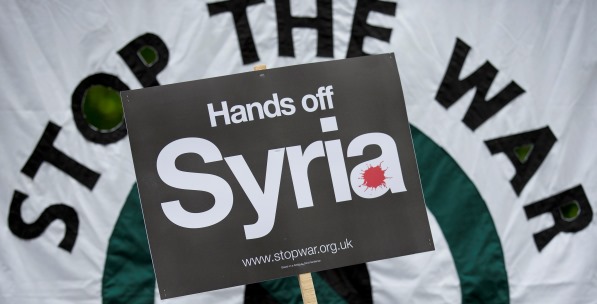Turkey established close relations with its Middle Eastern neighbors, including Syria, during the past decade to achieve interdependency through economic and political engagement. Turkey judged that interdependence and integration would result in gradual reform and increased economic opportunities for the peoples of the region.
However, the Arab Spring made it clear that change had to come sooner, as a regional revolutionary wave was set in motion. Decades old authoritarian structures were shaken to their core and regional and global players were forced to reconsider their regional policies. Turkey made a conscious strategic choice to side with the people power movements. The rationale for this choice was that repressive regimes throughout the region were unsustainable, and legitimate administrations reflecting the will of the majority had to be established. Today, as clear-cut regime change in Syria does not appear imminent, Turkey and its Western allies must agree on a common strategy to empower the opposition to arrive at a political solution.
With the onset of the Arab uprisings, Syria posed the most difficult challenge for Turkey but also for the broader international community. The Bashar al-Assad regime had been built from the beginning to squash any opposition movement. When faced with an existential threat, the regime was reset to its "factory settings" and has been fighting for its survival ever since. The regime had at its disposal a wide range of tools it could deploy, from its police state to its international alliances and from its chemical weapons arsenal to divisions within the opposition. Clearly, these options were not at all clear at the beginning, and the regime had to give up much of its independent decision-making to outside actors such as Iran.
Hezbollah's support proved critical for the regime, but it came at the expense of the regime's sovereignty. The Syrian regime was fighting for its survival, but Turkey's decision to support the opposition was never an existential threat. The regime marshaled all its military power and internal and external alliances to survive.
The failure of the international community to come up with a framework to empower and support the already fragmented opposition meant that the Assad regime could more easily play the game of divide- and-rule. Turkey's support has been insufficient to bring about unity among the opposition. The challenge has been enormous, especially if we consider that even the fairly unified Syrian regime had to be supported militarily by outside actors to survive. The plethora of opposition groups throughout the country has made it close to impossible to unify the opposition in the absence of the kind of overwhelming support needed to seriously destabilize the regime. As outside help has been minimal largely due to the clash of interests among regional and global players, there is no one united opposition front fighting against the regime.
It is becoming increasingly clear that the international community is not fully committed to supporting the opposition because of its misgivings about the rebels (disunity, radicalism, etc.). Lack of support prevents the emergence of a serious alternative to the Assad regime. It is true that even if the opposition were united and strong, there would be no guarantee of success. However, the emergence of al-Qaedalinked groups could have been prevented or at least the opposition would have had the wherewithal to confront such groups that threaten neighboring countries' security. They have complicated an already difficult situation to begin with and gave Western powers an excuse to stay away. The fact is that this problem is not going anywhere. The current prolonged stalemate in Syria will continue to pose security threats to all its neighbors.
The Syrian conflict is increasingly less likely to end in a clear victory by the regime or the opposition. A political solution is not on the horizon because of the protracted nature of the conflict and the fact that all fighting si







